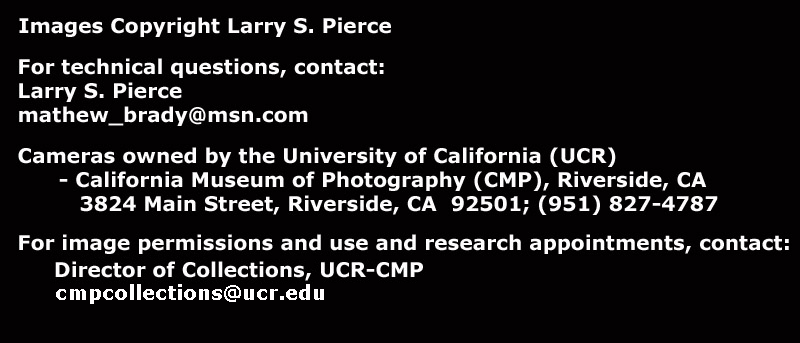Unknown
Counterfeit Rochester Optical Co. New Model Camera, Variation 1.5
8 x
10
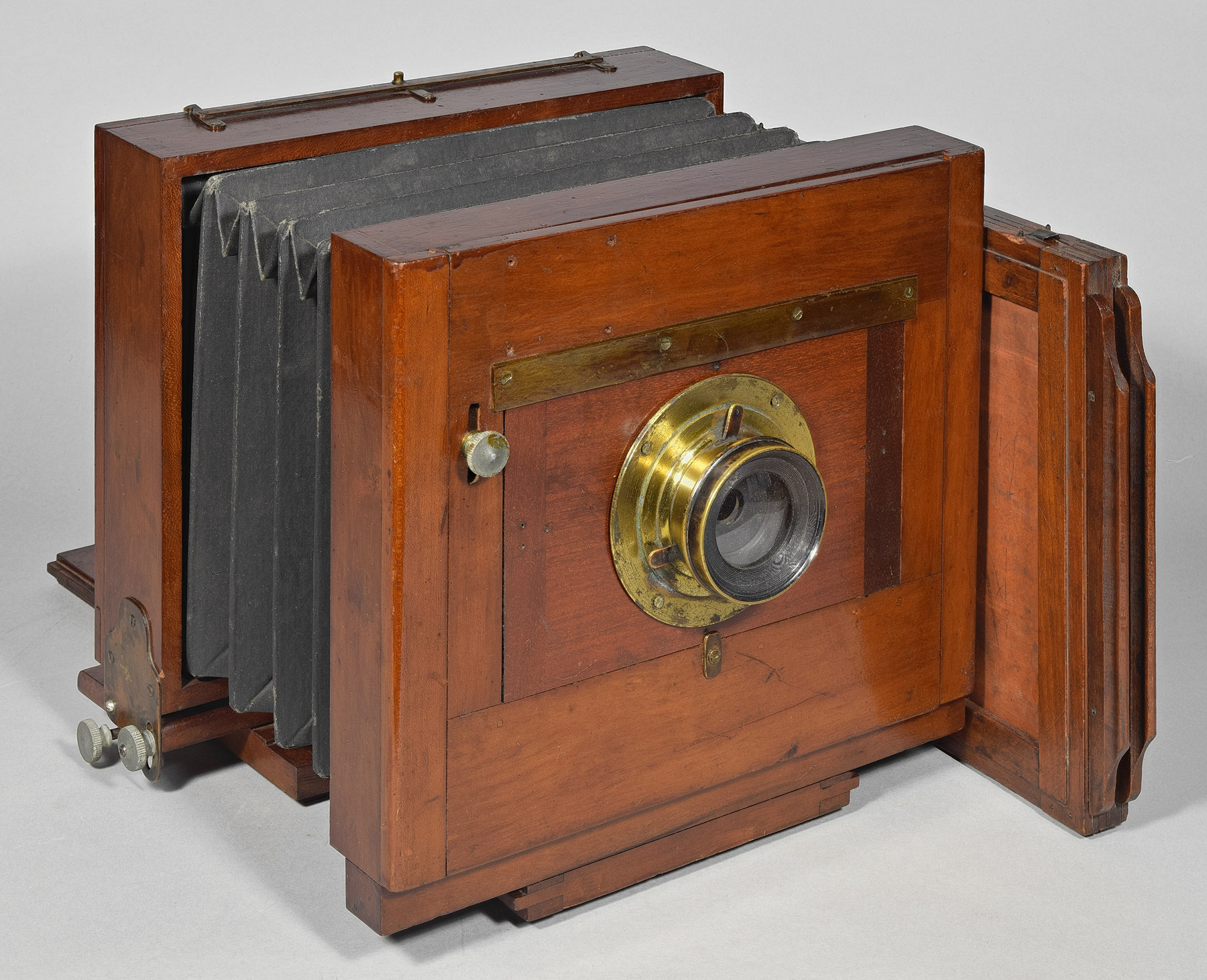
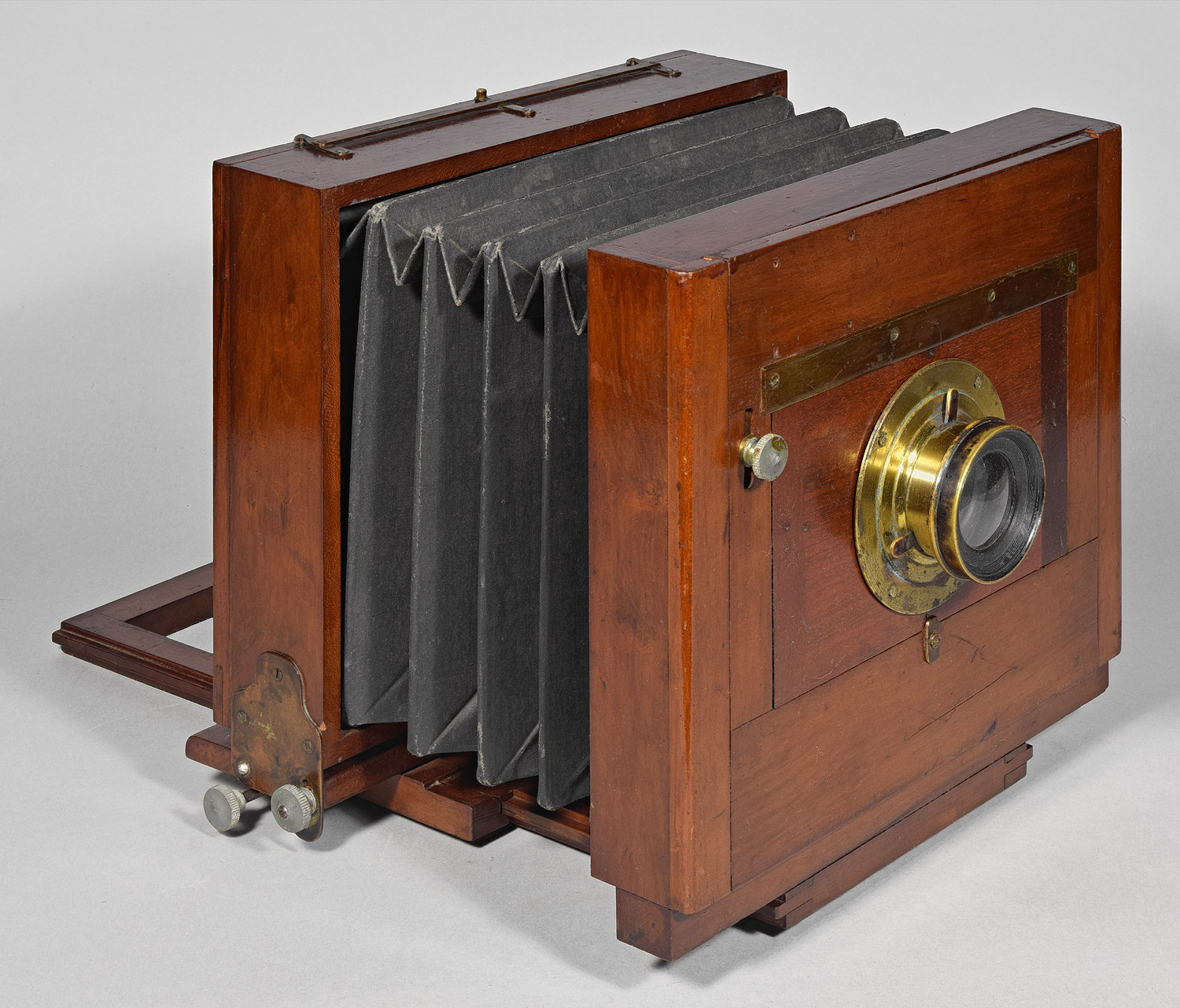
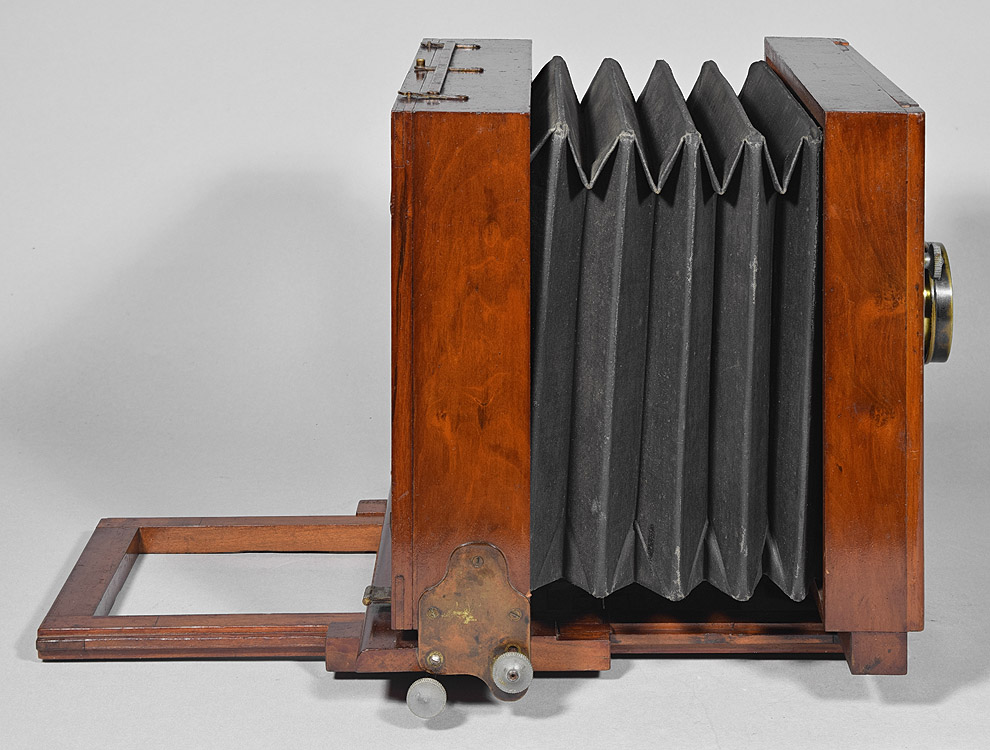
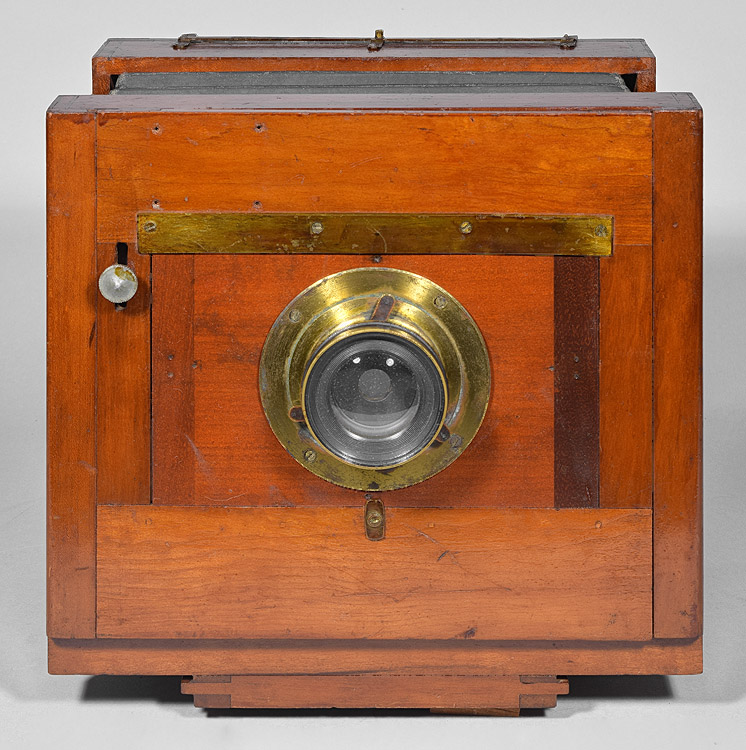
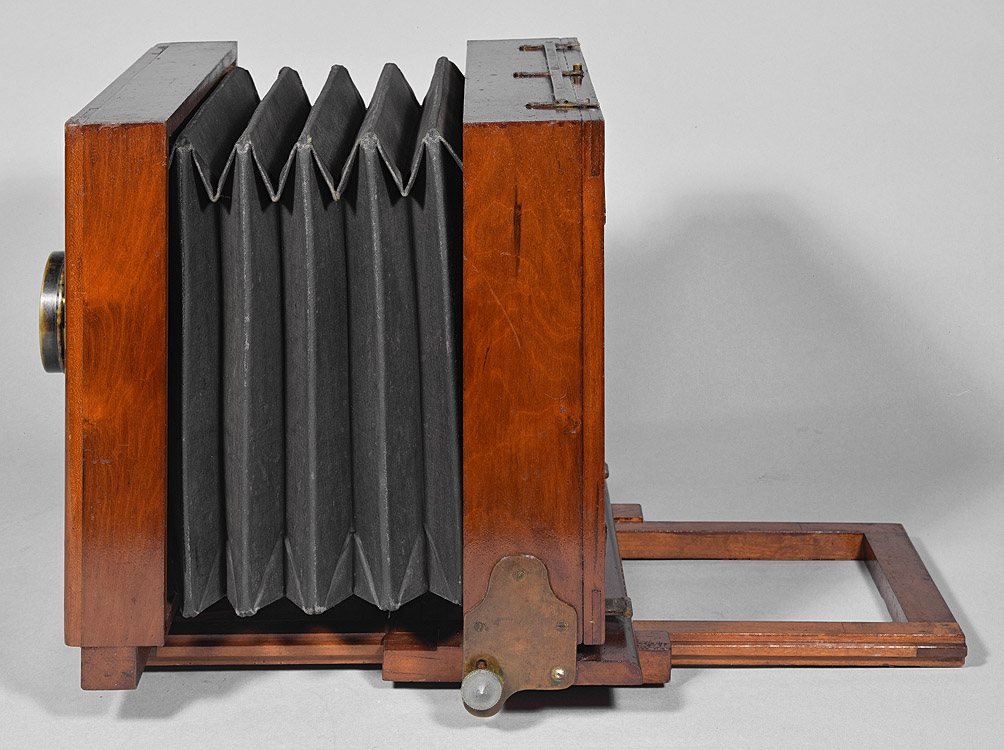
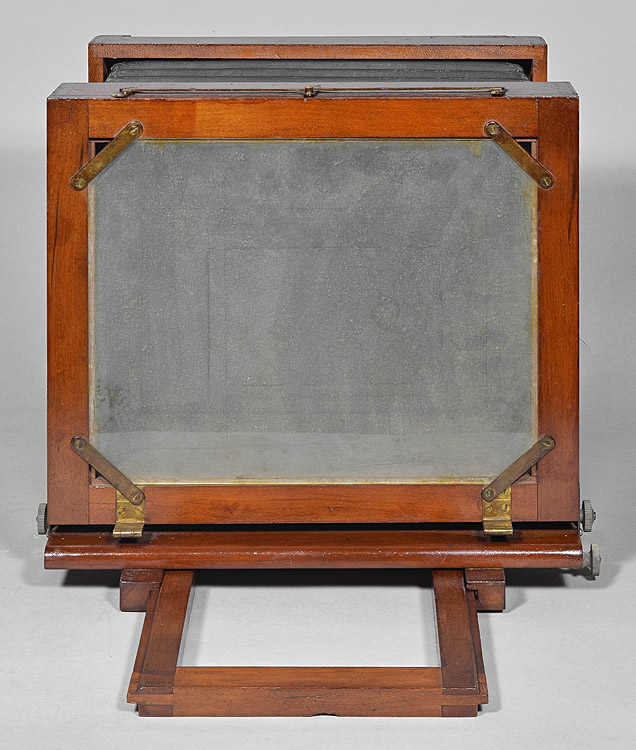
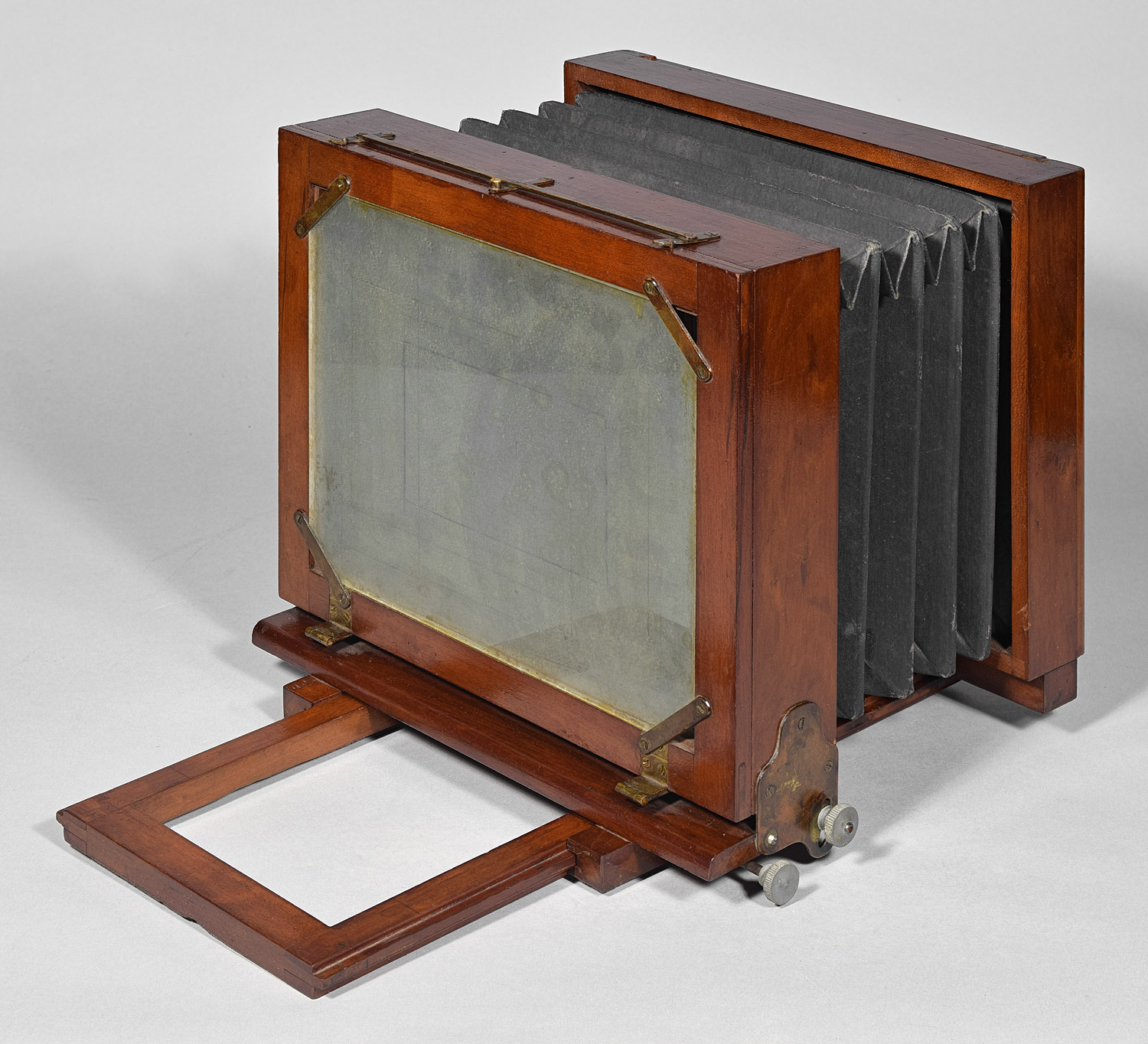
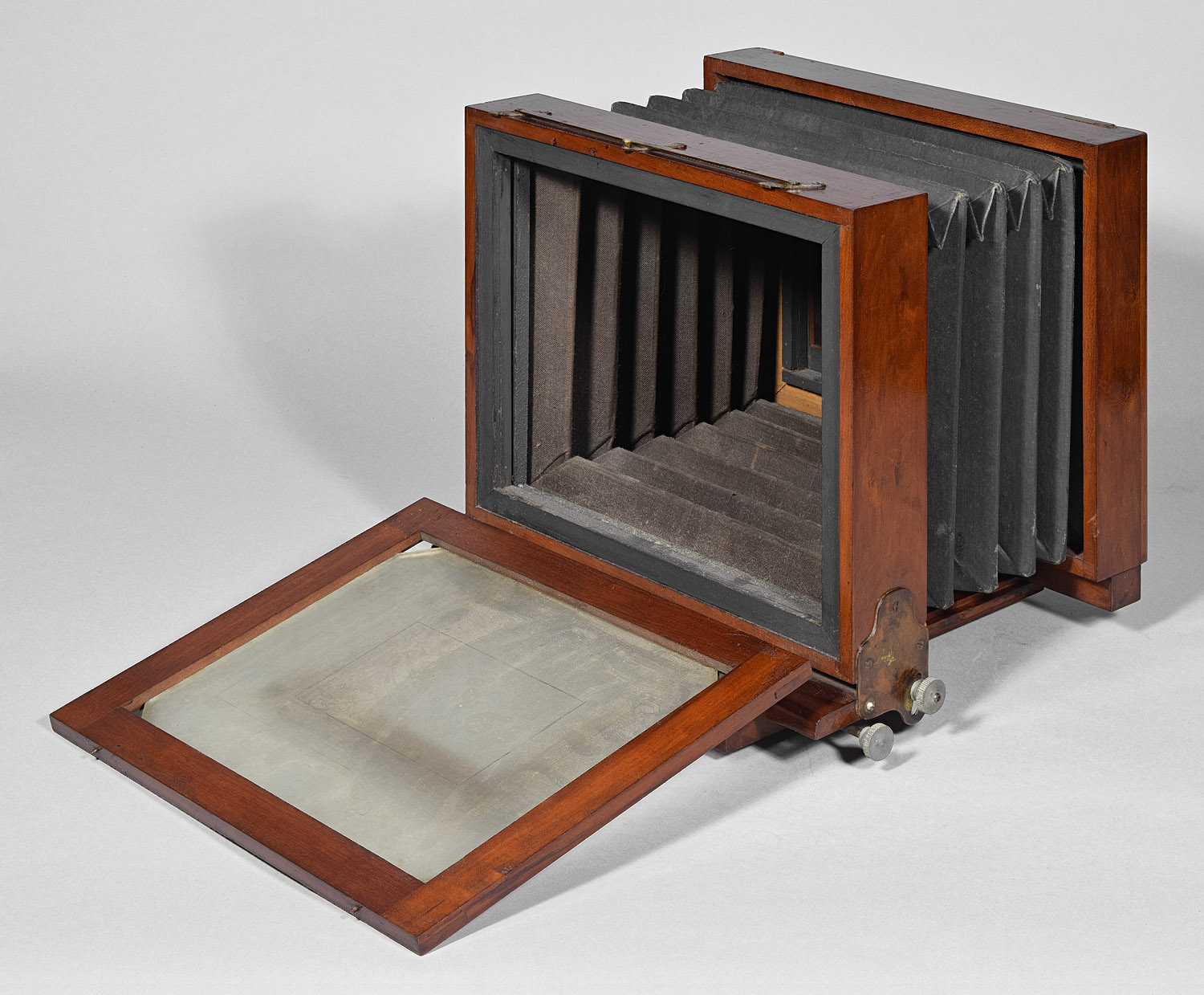
Bottom. The
hook keeps the platform rigid, but is on the bottom surface rather than
inside the platform, as the hook in a genuine Rochester Optical Co.
camera would be.
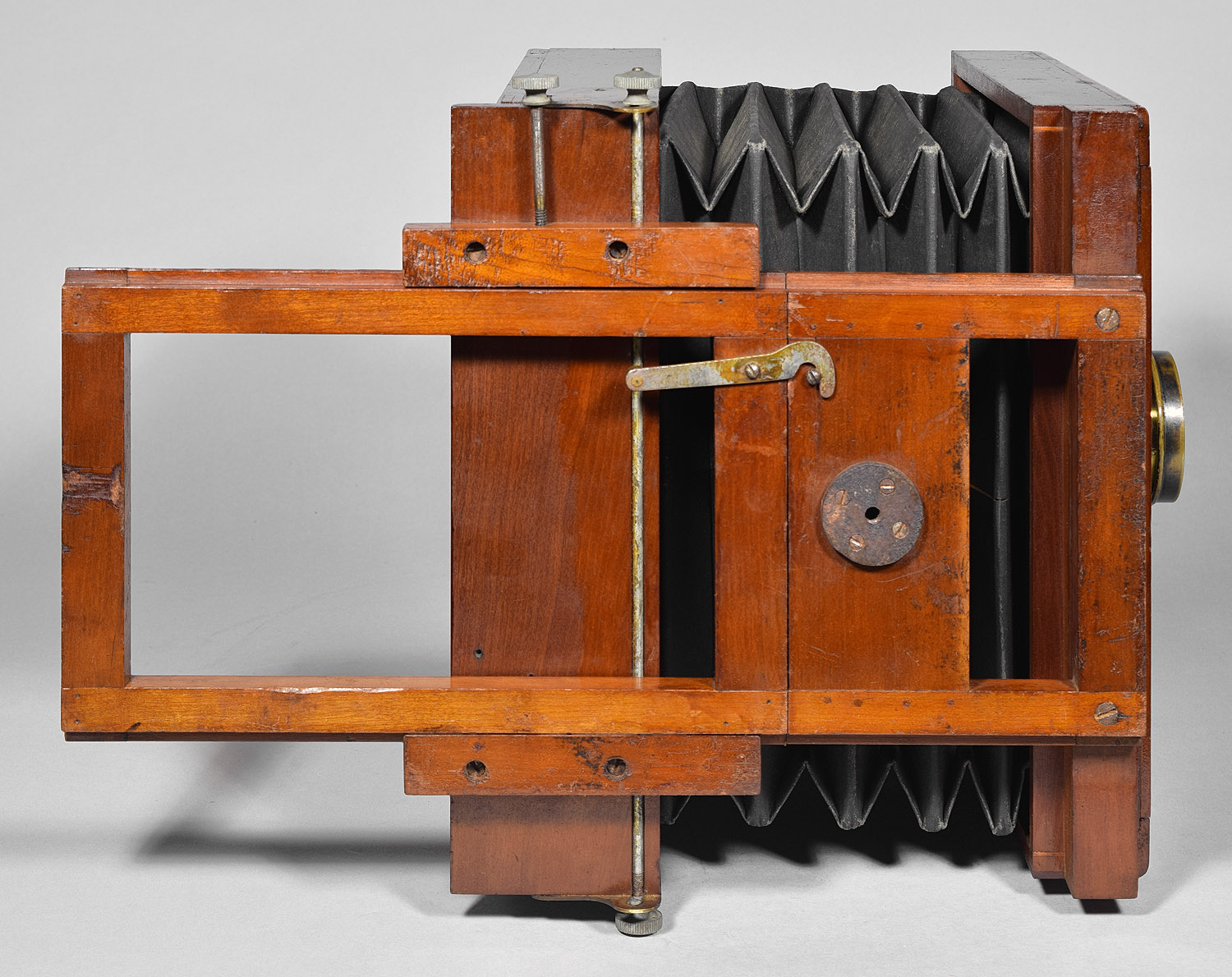
Top - Note the
device on the rear standard (to the left) that simultaneously engages
two brads to hold up the ground glass frame (and plate holders, when
installed)
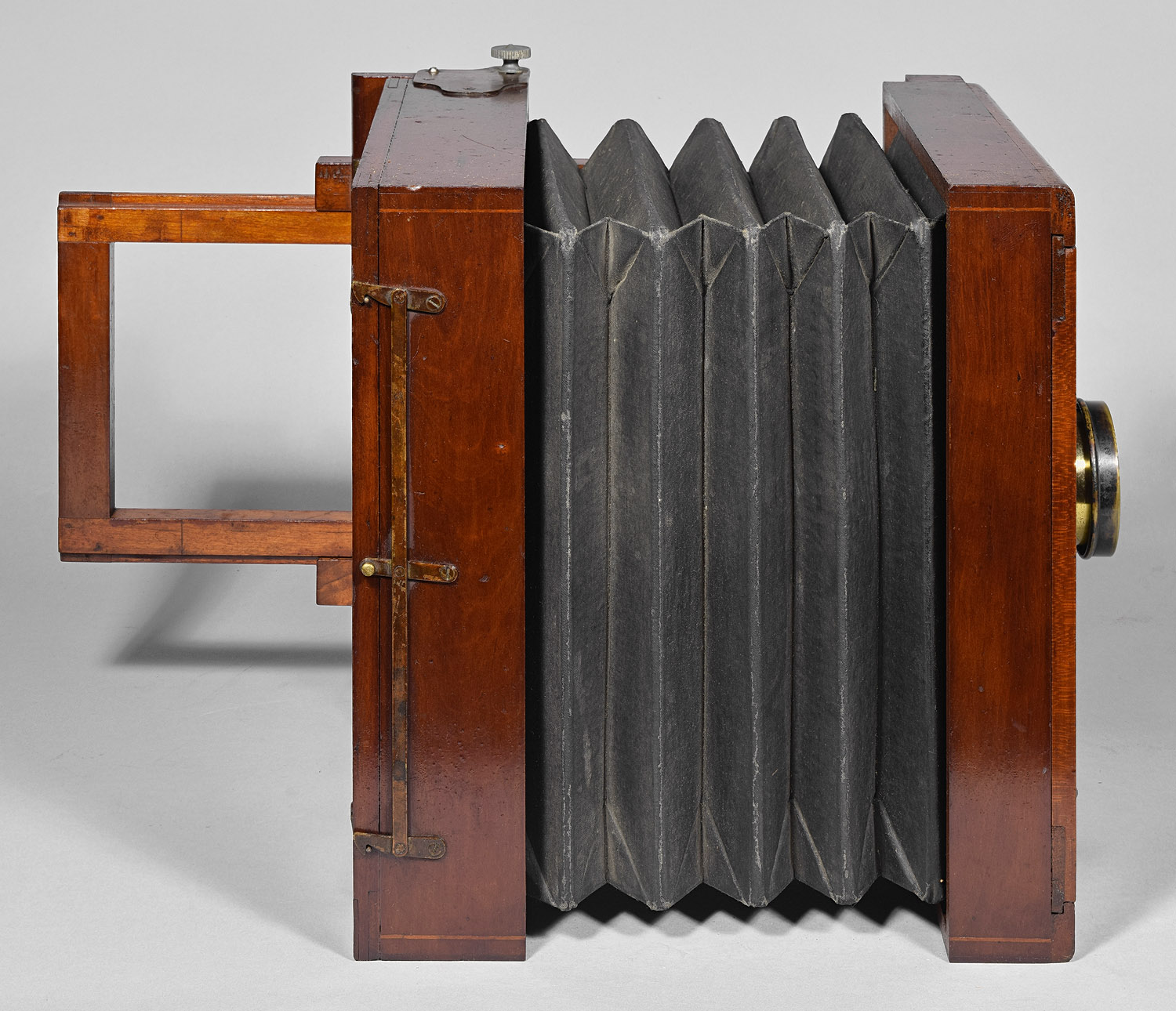
Date Introduced: - ;
Years Manufactured: c.
1886
Construction: back focus
via push-pull; single or no swing; three-piece lens
board; non-reversing; ground glass frame hinges down
Materials: mahogany
body; cherry bed; black fabric
bellows; brass hardware; French polish shellac finish
Sizes Offered: 8x10
Notes:
This is a rather well
made and finished camera that is very nearly a copy of the
Rochester Optical Co. New Model Variation 1.5 ,
including: a tongue and groove-type edge of its platform on which wooden
parts slide in order to focus; the focus is locked via a thumbscrew on
the right such wooden part; a ground glass frame hinged at the bottom
and held at the top by two brads; front and rear standards the same
size; the rear standard supported by metal plates on the lower sides; a
straight (not tapered) bellows. The counterfeit differs as
follows:
1) The boxes that constitute the front and rear standards are
constructed using rabbet joints rather than box joints, as used in the
vast majority of manufactured cameras, including those of the Rochester
Optical Co. Even though rabbet joints should be less secure than
box joints, none of the joints on this camera have come loose or have
cracks.
2) The hook that makes the platform rigid is on the bottom surface
rather than inside the platform, as it is on ROC New Models Variation
1.5 and later. This, and also the installation on the bottom
surface of a thick metal tripod screw receptacle results in the camera
being unable to sit squarely on a flat surface. Its performance on
a tripod is not affected.
3) The side plates that support the rear standard and allow it to tilt
are larger and a different shape than the ROC versions.
4) The counterfeit camera has a unique and clever device on top of its
rear standard that allows the operator to simultaneously swivel two
clips in order to engage the two brads on top of an ROC plate holder.
The ROC camera has two clips, but they must be engaged separately.
References:
Back to Rochester Optical Group of Manufacturers
